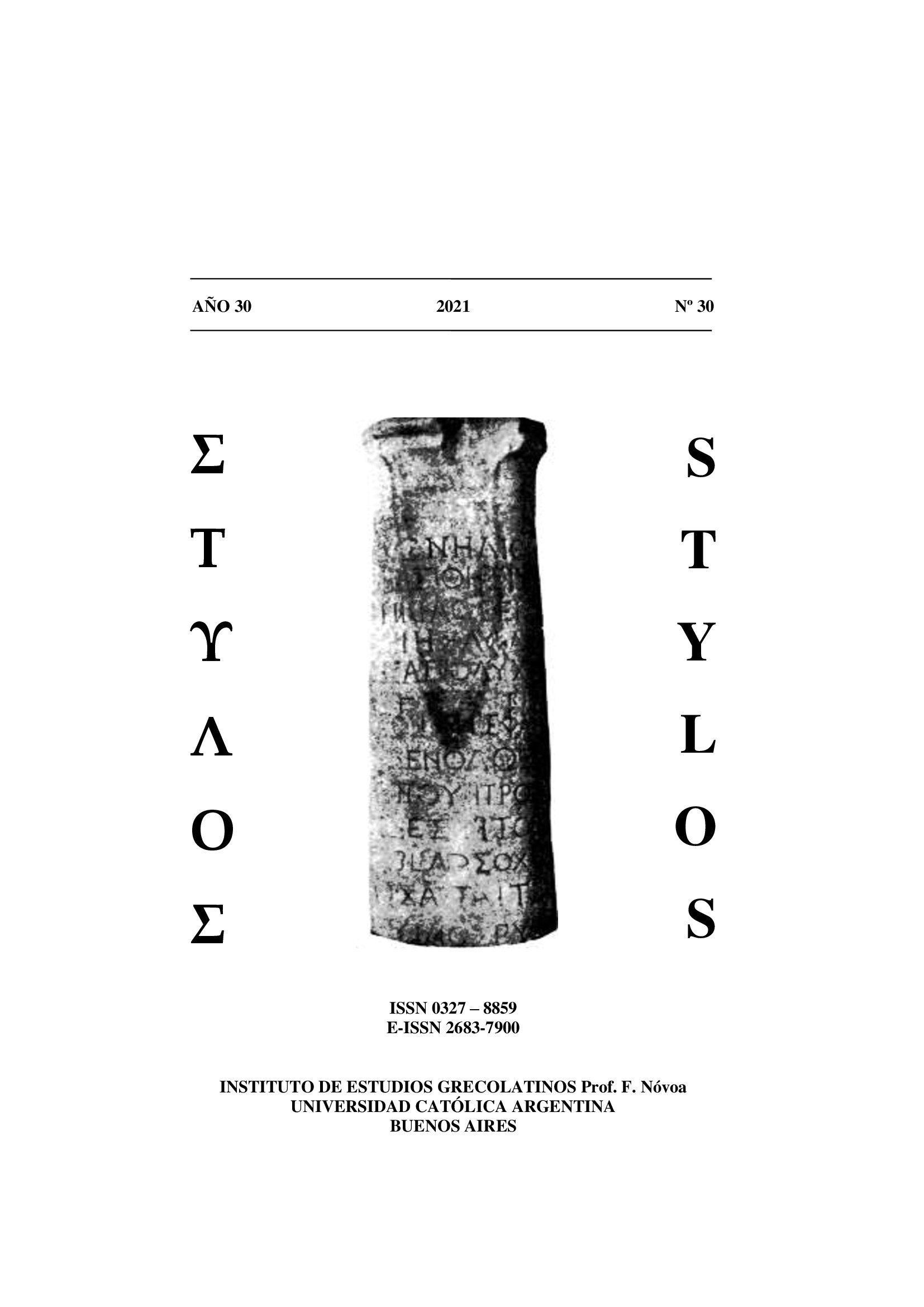LA AUCTORITAS SUBVERTIDA: MAGISTER Y DISCIPULUS EN LA EXPOSITIO VIRGILIANAE CONTINENTIAE DE FULGENCIO EL MITÓGRAFO
DOI:
https://doi.org/10.46553/sty.30.30.2021.p182-199Keywords:
Late Antiquity – Fulgentius – Virgil – magister – discipulus.Abstract
The Expositio uirgilianae continentiae –written by Fulgentius the Mythographer around the end of the 5th century A. D., or at the beginning of the 6th– is articulated on a series of assumptions that immediately refers us to the imaginary of two didactic discursive scenarios of Late Latin Literature. On one hand, the school of the grammaticus, with the omnipresence of Virgil, and linguistic and cultural normative. On the other hand, philosophical commentary, similar genre, but external to school and more interested in interpretation and exegesis. Fulgentius articulates his work in the form of a dialogue, through which Virgil's work is explained allegorically in terms of the stages of man's life. After that, the Christian sanction is added in order to close the meaning. Fulgentius asks Virgil, as grammaticus, to propose the allegorical interpretation of his poem, and then he completes the reading with the Christian sanction, through the quotation of the Holy Scriptures. This narrative design leads to the redefinition of the categories of magister and discipulus, as to a reformulation of the concept of auctoritas.
The present paper aims to study the construction of the figures of magister and discipulus in relation to the subtexts of late antique commentary, with the purpose of detecting the transformations operated, the register in which these transformations take place, and the reading key proposed by Fulgentius in order to read Virgil's work.
Downloads
References
EDICIONES
AGOZZINO, T. Y F ZANLUCCHI, Expositio Virgilianae continentiae, Padua: Universita degli Studi di Padova. Accademia Patavina di Scienze, Lettere ed Arti. Istituto di Filología Latina [Collana Accademica, 4], 1972.
HELM, R. Fabii Planciadis Fulgentii V.C. Opera, Leipzig: Teubner, 1898 (reimpr. 1970).
KASTER, R. Macrobii Ambrosii Theodosii Saturnalia, Oxford—New York, Oxford University Press, 2011.
KEIL, H. Grammatici Latini, ex recensione Henrici Keilii, Donato, Ars Grammaticae, vol. IV, Leipzig, Teubner, 1868.
MIGNE, J. P. Patrología Latina, París, 1844-1864.
THILO, G.- H. Hagen (eds.). Servius. Vergilii carmina commentarii, Leipzig: Teubner, 1881-1902.
WILLIS, J. Ambrosius Theodosius Macrobius. Lepizig : Teubner, 1970.
BIBLIOGRAFÍA CITADA
CAMERON, A. “Paganism and literature in late fourth century Rome”, Entretiens sur l’ antiquité classique, 1977 tome XXIII 1-40.
ELSNER, J. – J. Hernández Lobato (eds.). The poetics of late Latin litera-ture. Oxford: Oxford University Press, 2017.
FONTAINE, J. “Unité et diversité du mélange des genres et des tons chez quelques écrivains latins du la fin du IV siècle: Ausone, Am-broise, Ammien”, Entretiens sur l’ antiquité classique, 1977 tome XXIII: 425- 482.
HAYS, G. “Fulgentius the Mythographer" (Diss. Cornell, 1996).
KASTER, R. Guardians of language: The grammarian and Society in Late Antiquity, Los Angeles: University of California Press, 1988.
PERNOT, L. “La Seconde Sophistique et l’Antiquité Tardive”, Classica 2006 19:1, 30- 44.
QUIROGA, A. “La tercera sofística en el marco teórico de la historiogra-fía sobre la Antigüedad Tardía y el postmodernismo”, Talia Dixit 2010 75- 90.
RELIHAN, J. Ancient Menippean Satire, Baltimore: Johns Hopkins Uni-versity Press, 1993.
SLUITER, I. "Commentaries and the didactic tradition", Glenn W. Most (ed.), Commentaries - Kommentare (Aporemata Bd 4), Göttingen, 1999 173-205.
STOK, F. "Commenting on Virgil, from Aelius Donatus to Servius", Dead Sea Discoveries 2012 19, 464-484.
STOK, F."Virgil Between the Middle Ages and the Renaissance", IJCT, 1994 Vol. 1, No. 2 15-22.
Downloads
Published
How to Cite
Issue
Section
License






